The adoption of Artificial Intelligence (AI) tools is rapidly transforming professional services, and specialized consulting is no exception. I was inspired to write about this topic after a conversation with my nephew, who is studying law. We discussed his employment prospects after graduation.
The reflection that emerged from our conversation is that AI now assists in automating repetitive tasks with minimal technical effort. It can also perform data analysis in seconds and generate documents. This raises an important question: How will young professionals position themselves in the face of this wave of digitalization that is transforming precisely those tasks that used to serve as their entry point into the workforce?
Opportunities for Junior Professionals
A central debate revolves around the hiring of young talent. In many consulting firms, repetitive tasks—such as data extraction, table review, and text editing—have traditionally been part of the “learning process” for new consultants. If these tasks are automated… Where will new professionals learn? What tasks remain as entry points?
This could be concerning if consulting firms fail to rethink their training processes. But it also presents a major opportunity: relieving juniors from mechanical tasks could allow them to gain experience in more strategic areas from the start—as long as they receive proper guidance and mentorship.
What Types of Organizations Will Lead This Transition?
Not all consulting firms will adopt AI at the same pace or with the same mindset. Those most likely to lead will be the ones that:
- Foster a culture of continuous learning, where both seniors and juniors regularly update their skills.
- View AI as an extension of the team, not as a threat.
- Document and systematize their technical knowledge, allowing AI to amplify it.
- Invest in processes, not just people, creating structures that can scale with technology.
In short, the winning firms will not just adopt technology—they will evolve their way of thinking and working.
The True Value of Consulting: Creativity and Context
Beyond automation and efficiency, the real value of consulting services still lies in human creativity and the ability to contextualize solutions based on past experience, a deep understanding of the environment, and qualitative nuances that AI still cannot internalize.
Junior professionals who manage to develop and apply this kind of value generation—critical thinking, contextual awareness, and sensitivity to complex realities—will be the ones best positioned in the future job market.
But here’s the paradox: the ability to contextualize and propose creative solutions is often built through experience—something that, in traditional models, was gradually developed through exposure to real-world cases.
This challenge forces us to rethink not only how we train new talent, but also how we structure teams and mentorship processes in an era where AI can do more in less time, yet still cannot replace the intuition that comes from professional experience.




